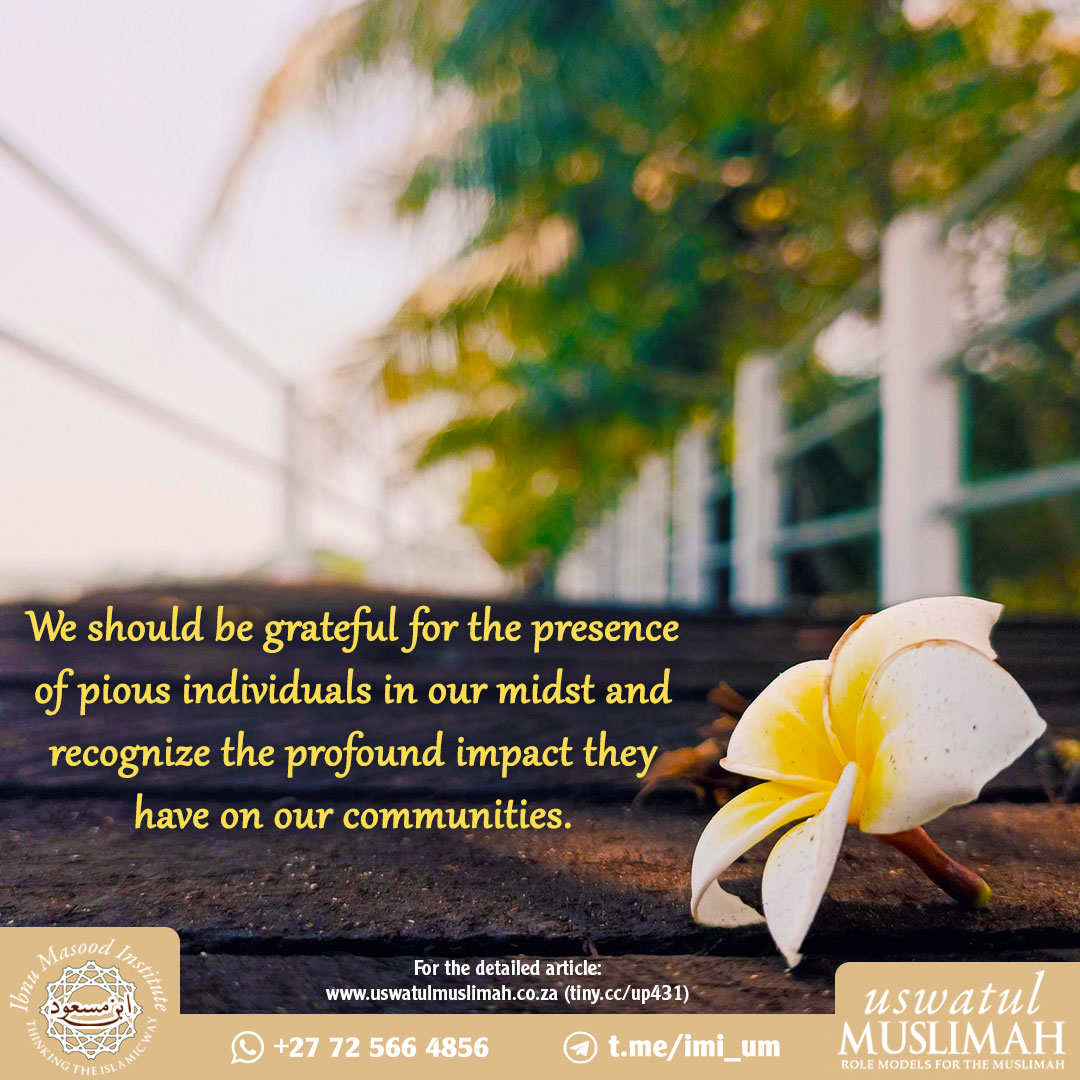(Sayyidah Zainab bintu Jahsh [radhiyallahu ‘anha] – Part Six)
Sayyidah Zainab bintu Jahsh (radhiyallahu ‘anha) was the first wife of Rasulullah (sallallahu ‘alaihi wasallam) to pass away after him, as he (sallallahu ‘alaihi wasallam) had prophesized.
Before her passing, Sayyidah Zainab (radhiyallahu ‘anha) had prepared her own kafan (shroud) and gave the following instruction, “Indeed, I have prepared my kafan. Perhaps ‘Umar will send a kafan for me. When he does, give one of them in charity.” Subsequently, Sayyiduna ‘Umar (radhiyallahu ‘anhu) sent five pieces of cloth for her kafan. She was enshrouded in these, and her sister, Sayyidah Hamnah (radhiyallahu ‘anha), gave the shroud that she had prepared in charity.
Sayyiduna ‘Umar (radhiyallahu ‘anhu), who was the Ameerul Mu-mineen at the time, performed her Janaazah Salaah. Many other senior Sahaabah (radhiyallahu ‘anhum) also participated in her Janaazah.
While carrying her blessed body to her grave, her blind brother, Sayyiduna Abu Ahmad (radhiyallahu ‘anhu), was weeping. Sayyiduna ‘Umar (radhiyallahu ‘anhu) advised him to stay away from the bier lest he be harmed by the crowd. He replied, “O ‘Umar, this is the woman through whom we attained every good, and undoubtedly this (i.e. carrying her bier and weeping) cools down the heat of what I am experiencing.” Sayyiduna ‘Umar (radhiyallahu ‘anhu) then permitted him to continue.
When Sayyidah Zainab (radhiyallahu ‘anha) was brought to her grave, Sayyiduna ‘Umar (radhiyallahu ‘anhu) praised Allah Ta‘ala and said, “When this woman became ill, I sent a message to the wives (of Rasulullah [sallallahu ‘alaihi wasallam]), asking: ‘Who will see to her and care for her?’ They replied, ‘We will.’ I have seen that they were honest. I then sent a message to them when she passed away, asking: ‘Who will give her ghusl, perfume her and enshroud her?’ They replied, ‘We will.’ I have seen that they were truthful. Then I asked: ‘Who will enter her into her grave?’ They replied, ‘Those for whom it was permissible to enter upon her and look at her during her lifetime (i.e., her mahrams).’ I have seen that they have spoken the truth. So, move aside O people!” Thereafter, a few members of her household lowered her into the grave.
Sayyidah Zainab bintu Jahsh (radhiyallahu ‘anha) passed away in the year 20 A.H. in Madeenah Munawwarah and was buried in Jannatul Baqee’. At the time of her demise, she was either 50 or 53 years old. She did not leave behind a single dinaar (gold coin) or dirham (silver coin).
When she passed on, Sayyidah ‘Aaishah (radhiyallahu ‘anha) began to weep over her and reminisce her. When asked the reason for her tears, she replied “She was a righteous woman.” She also said, “She departed (this world) as a praiseworthy woman, one whose absence will be (deeply) felt, and whilst being a source of comfort for orphans and widows.”
(Saheeh Muslim #6316, Tabraani – Majma‘uz Zawaa-id #15345 & #15346, Bazzaar – Majma‘uz Zawaa-id #15343, Mustadrak Haakim #6775, Tabaqaat Ibni Sa’d vol. 8, pg. 109-114 and Al-Isaabah vol. 8, pg. 155)
Lessons:
1. As explained previously, Sayyidah Zainab (radhiyallahu ‘anha) was an abstinent woman who had completely detached herself from the material things of this world. This quality was so deeply embedded within her that she did not leave behind anything, and had even bequeathed one of her kafans to be given in charity because she anticipated that Sayyiduna ‘Umar (radhiyallahu ‘anhu) would send a kafan for her.
2. Despite being co-wives, the respected wives of Rasulullah (sallallahu ‘alaihi wasallam) volunteered to take care of Sayyidah Zainab (radhiyallahu ‘anha) during her illness, give her ghusl and enshroud her after her demise. Unfortunately, nowadays, some people are not even prepared to care for their own parents and grandparents during their illness or old age.
3. The passing of a righteous person is a tremendous loss as they are beacons of light in this world and a means of the mercy of Allah Ta‘ala descending. The reaction of the Sahaabah (radhiyallahu ‘anhum) to Sayyidah Zainab’s (radhiyallahu ‘anha) passing on teaches us to be grateful for the presence of pious individuals in our midst, recognizing the profound impact they have on our communities.
Part One Part Two Part Three Part Four Part Five Part Six

